 THE CONTROVERSY about the latest GCSB legislation is a much healthier debate on the erosion of civil liberties than we’ve had for any of the previous legislation passed in the wake of the terror attacks on the US in 2001.
THE CONTROVERSY about the latest GCSB legislation is a much healthier debate on the erosion of civil liberties than we’ve had for any of the previous legislation passed in the wake of the terror attacks on the US in 2001.
This year’s GCSB (Government Communications Security Bureau) Bill and TICS (Telecommunications Interception Capability and Security) Bill come after:
- 2002
Terrorism Suppression Act
2003
Government Communications Security Bureau Act
2003
Telecommunications (Interception Capability) Act
2003
Crimes Amendment Act
2003
Counter-Terrorism Bill
2003
Border Security Bill
2004
Telecommunications (Interception Capability) Act
2004
Maritime Security Act 2004
2004
Identity (Citizenship and Travel Documents) Bill
2006
Aviation Security Amendment Bill
2007
Terrorism Suppression Amendment Bill
2011
SIS Amendment Bill
2012
Search and Surveillance Bill.
Each of these bills extended the powers of government agencies to spy on New Zealanders. But John Key is not happy so we have the –
- 2013
GCSB and Related Legislation Amendment Bill
2013
Telecommunications Interception Capability and Security Bill.
See more details of these laws below – it’s a rough summary rather than a definitive description of each piece of legislation but it underlines the importance to roll back the surveillance state.
(EDITOR’S NOTE: If you need to zoom in on these tables, click here to download the pdf.)
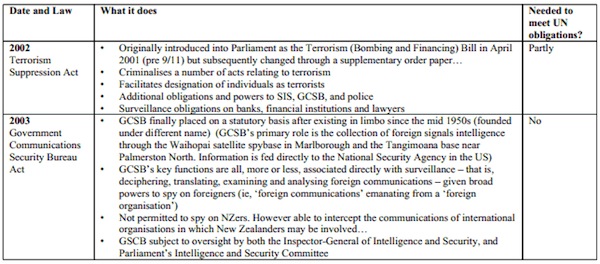
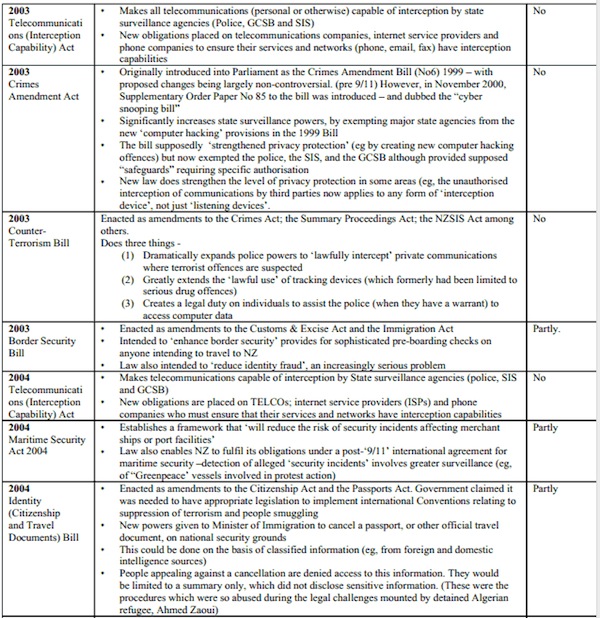
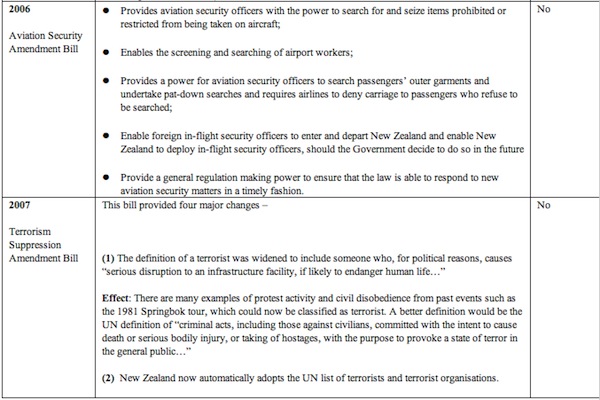
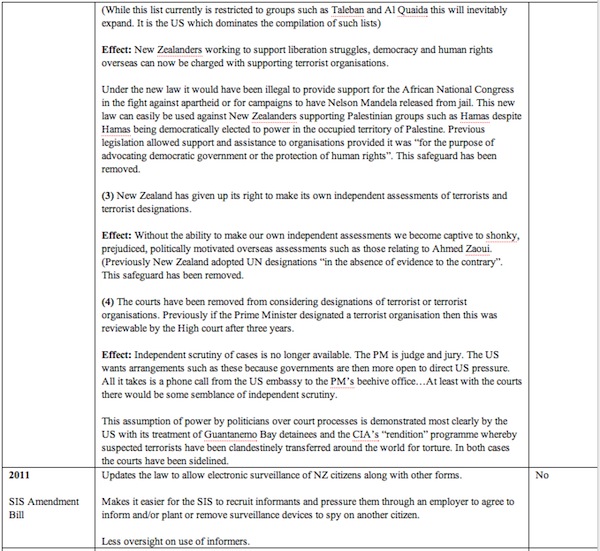
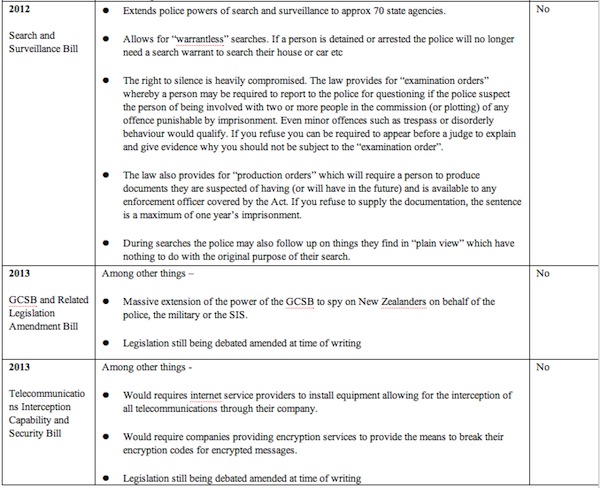

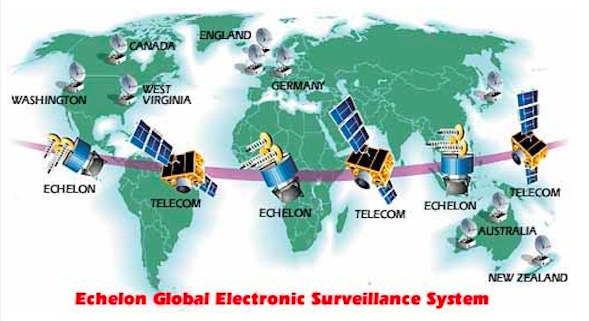




[…] […]
This isn’t even all of it John, these are the most important, but others such as the youth offenders amendment bill. Which allows the collection and storage of biometric data from people under 25 without conviction!
It’s quite shocking if you think about the fact that even the most oppressive regimes in history never had this level of surveillance available. The government tells us not to fear we need it to protect you, but how will we protect ourselves from them? Just as we are all just a couple of pay checks from destitution, we are now but a couple of governments from totalitarianism.
Yes that’s a fair enough comment – there’s also the law demonising seaborn protest on the against big oil companies. If that had been in place in the 1980s most of the Peace Squadron protests would likely have been illegal.
I’ve just summarised the ones relating to spying by police SIS and GCSB
[…] are so many other attacks on our civil liberties and human rights going on in this country at the moment – so very many […]
You are right John. So much is being spent in time, energy and money in defending the right to suppress citizens around the world.
I’ve been giving a bit of thought to the GCSB bill and think there is another angle from to make a challenge. I haven’t actually seen any evidence that a cost/benefit analysis has been done on the GCSB Bill. Surely in this economic world we need to know how much it will cost the tax payers and also the financial benefit which will be gained by spying on our citizens. We seem to have all of the legal and emotional arguments, which are very good, but the accountants don’t seem to have been out yet. Could the money which will be spent on the actual collection of meta data, then the storage, monitoring, cost of privacy etc over a period of many years be justified? This will be a big, expensive project for which there is absolutely no justification surely. Perhaps the money would be better spent on improving health and safety so that we are not losing one worker each month in our forests? There are also many more justifiable and necessary calls on our scarce funds for health, education, job creation etc. Just a thought and maybe this can be used somewhere. – See more at: https://thedailyblog.co.nz/2013/07/26/interview-with-a-boffin-is-it-possible-to-shut-down-the-gcsb/#comment-70829
all of this is a microcosm of what is/has been happening world wide, welcome to the “brave new world”/1984 scenarios…….if you dont know ? then check out http://www.thrivemovemet.com
[…] laws have extended the powers of government agencies to spy on New Zealanders. Check out the list here. Ten out of 15 of these repressive laws were enacted by […]
Comments are closed.